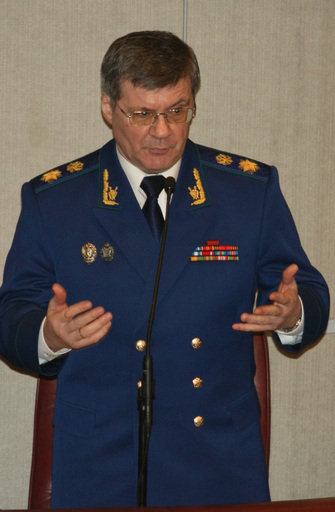MOSCOW, April 10 - RAPSI. Russian Prosecutor General Yury Chaika defended recent inspections of Russian non-governmental organizations (NGOs) on Wednesday at a meeting with the Council of Europe's Commissioner for Human Rights Nils Muiznieks, Chaika's office said.
A series of nationwide NGO inspections have taken place in Russia since March. Many critics - and indeed President Vladimir Putin himself, earlier this week - have linked them to a controversial new law, obliging non-governmental organizations financed from abroad and involved in political activity to register as “foreign agents.”
Russian Prosecutor General’s Office spokeswoman Marina Gridneva said Chaika told Muiznieks during the meeting “that under a law adopted late last year, non-governmental organizations are obliged to register with the Russian Justice Ministry as foreign agents.”
“However, not a single organization has registered so far, although they continue to receive financing from abroad. Chaika gave a number of actual examples,” she said, without giving the names of those organizations.
The prosecutor general said organizations that receive funding from abroad are not banned from working in Russia, but they should openly declare their sources of income.
The spokeswoman added that prosecutors have evidence proving that Russian NGOS received foreign funding
“There is no doubt that claims about the amount of foreign funding NGOs receive are properly substantiated. There are documents to prove these figures,” Gridneva said.
She said that in 2011, NGOs operating in Russia received at least 19 billion rubles ($615 million) in funding from abroad. Since the NGO funding law came into force on November 21, 2012, and until March 26, 2013, Russian NGOs received over 28.3 billion rubles ($916 million). The same figures were voiced by Putin at a news conference in Germany on April 8.
On Tuesday, election monitoring non-governmental organization Golos (Voice) became the first NGO to face administrative measures under the recently introduced law on “foreign agents.”
Russia’s leading independent watchdog and its head Lilia Shibanova were accused of receiving funds from abroad, but failing to register as a “foreign agent.”
Shibanova replied that the organization has not received foreign funding since the law on “foreign agents” came into force last November.



